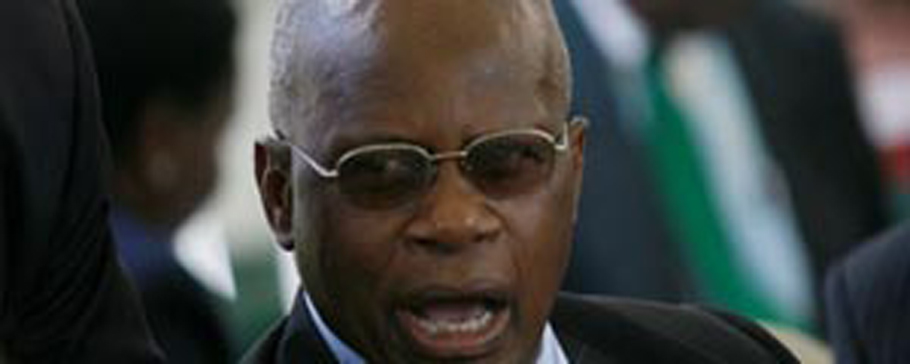
FINANCE minister Patrick Chinamasa Thursday pleaded with diplomats from countries that have been hostile to his party, Zanu PF, to bury the hatchet and work with the government for mutual economic benefit.
Dumisani Sibanda, Assignments Editor
Addressing Western diplomats at the Foreign Affairs offices in Harare, Chinamasa implored them to lobby for the lifting of sanctions imposed on top government officials.
He said in the next few months, Indigenisation minister Francis Nhema would explain how each economic sector will be indigenised to dispel fears that the policy was aimed at nationalising all foreign-owned companies.
Chinamasa, who was flanked by Information, Media and Broadcasting Services minister Professor Jonathan Moyo and Foreign Affairs minister Simbarashe Mumbengegwi, was briefing diplomats on government’s economic turnaround programme — the Zimbabwe Agenda for Sustainable Social and Economic Transformation (Zim Asset).
“We stand ready to allow our economy to talk to yours,” said the usually combative Finance minister addressing the group of diplomats who included EU Ambassador Aldo Dell’Ariccia. “We are appealing and hope the sanctions will be lifted against us. Let’s start talking and intensifying our economic relations because it’s to our mutual benefit. Trading is a mutual thing and so is investment. I want to talk economics to all your countries, your businesspersons, not withstanding our political differences.”
Zimbabwe has had frosty relations with the Anglo-Saxon world since the launch of its land reform programme resulting in the imposition of sanctions on Harare which, however, those countries called targeted measures.
Chinamasa said the first step in the attraction of investment into Zimbabwe was ensuring there was “clarity and consistency in the implementation of policies”.
- Chamisa under fire over US$120K donation
- Mavhunga puts DeMbare into Chibuku quarterfinals
- Pension funds bet on Cabora Bassa oilfields
- Councils defy govt fire tender directive
Keep Reading
“It does not embarrass me to make a U-turn when we see it is no longer possible to move in that path,” he said.
“We need to be clear about indigenisation. People are put off even by the name indigenisation because it’s there in other countries, but called localisation or other terms, but it raises no pimples.”
He said government has asked for experts from the World Bank and the African Development Bank to assist it on how it can mobilise resources through the securitisation of Zimbabwe’s mineral resources.
Chinamasa said government was keen to ensure transparency in the diamond sector which was one of the benchmarks in the International Monetary Fund staff-monitored programme on Zimbabwe.
However, he said this could only be possible if sanctions have been removed. Chinamasa said government wanted to cultivate a culture of paying its debts and he will now insist that for any “new obligation the country enters into” there is a payment plan.
He said government was looking into “bringing to life State assets such as the Cold Storage Commission and Agricultural Rural Development estates which are lying fallow” through joint ventures.
The Finance minister said private-public partnerships for big projects such as road maintenance were being considered as well as “looking at whether the National Railways of Zimbabwe is amenable to such an arrangement”.











